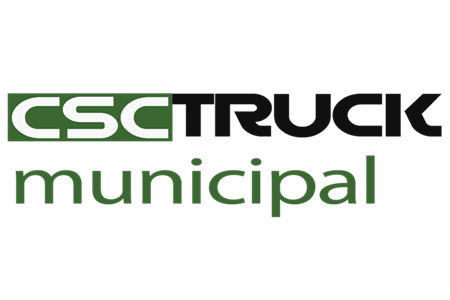In the modern world, waste management plays a pivotal role in maintaining the cleanliness and sustainability of our cities. Among the many tools that aid in this endeavor, self-tipping garbage trucks have emerged as a revolutionary solution. These trucks are equipped with automated systems that enable them to unload waste containers without the need for manual intervention. However, like any other machinery, self-tipping garbage trucks require regular maintenance to ensure they operate efficiently and contribute to seamless waste disposal processes.
The Innovation of Self-Tipping Garbage Trucks
Self-tipping garbage trucks represent a significant leap in waste management technology. Traditional garbage trucks relied on manual labor to unload waste containers into the truck’s main compartment, a process that was labor-intensive, time-consuming, and often posed safety risks for the workers. The introduction of self-tipping trucks addressed these concerns by automating the unloading process. These trucks are designed with hydraulic systems that allow them to tilt backward, causing the waste containers to slide off and empty their contents into the main storage area.
Importance of Regular Maintenance
While self-tipping garbage trucks bring efficiency to waste collection and disposal, their proper functioning hinges on regular maintenance. Neglecting maintenance can lead to a host of issues that hinder their performance, increase operational costs, and even compromise safety. Regular upkeep not only extends the lifespan of these trucks but also ensures that they continue to contribute to cleaner and healthier urban environments.
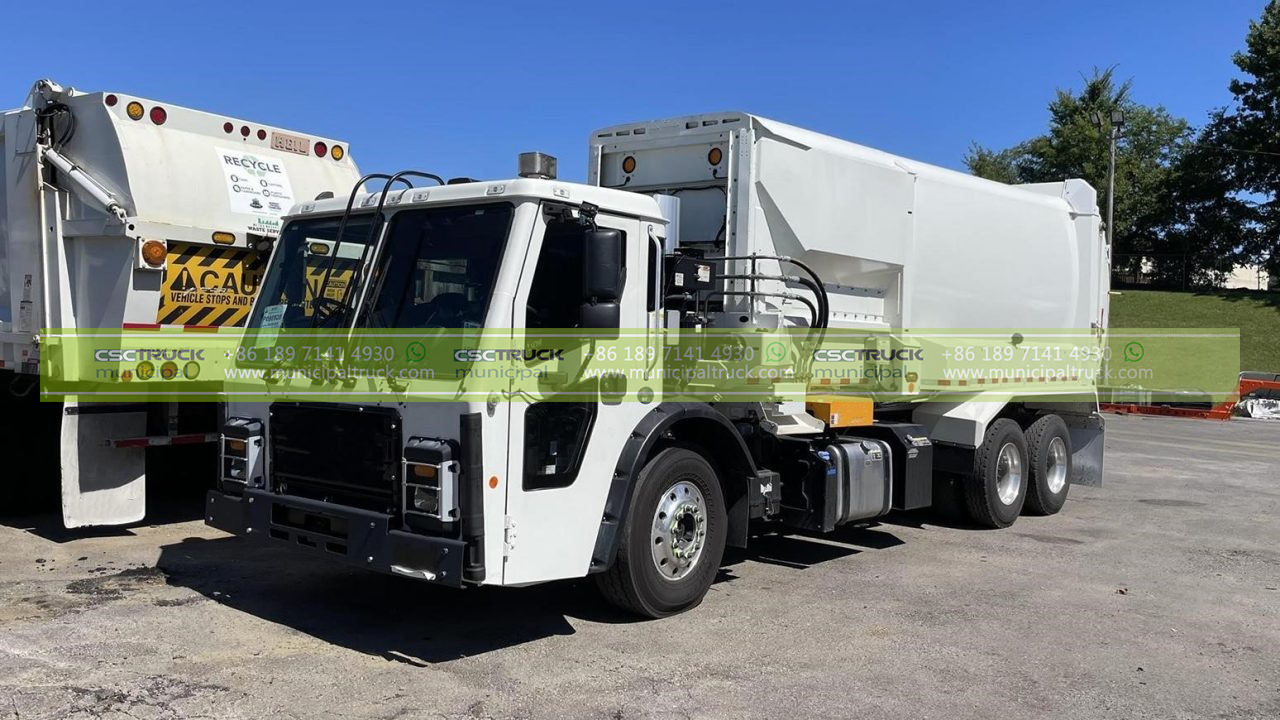
Key Maintenance Practices
1. Hydraulic System Inspection: The hydraulic system is the heart of a self-tipping garbage truck. Regularly inspecting hydraulic components such as hoses, cylinders, pumps, and valves is essential to identify any leaks, cracks, or wear. Proper lubrication and replacement of damaged parts are crucial to maintain the system’s efficiency.
2. Electrical System Check: Self-tipping trucks rely on advanced electrical systems for automation and control. Routine inspections of wiring, sensors, switches, and control panels are vital to ensure proper functioning. Any signs of electrical issues should be promptly addressed to prevent breakdowns.
3. Chassis and Frame Maintenance: The truck’s chassis and frame provide the structural integrity needed for the self-tipping mechanism. Regular inspections for signs of corrosion, stress, or cracks are essential. Additionally, maintaining proper tire pressure and wheel alignment contributes to overall truck stability.
4. Waste Compartment Cleaning: The waste compartment should be thoroughly cleaned after each disposal cycle to prevent the buildup of debris, liquids, and odors. This prevents deterioration of the truck’s interior and ensures hygienic waste handling.
5. Fluid Levels and Changes: Regularly checking and replenishing fluid levels, including hydraulic fluids, engine oil, coolant, and brake fluids, is crucial for optimal truck performance. Scheduled fluid changes as per the manufacturer’s recommendations are equally important.
6. Safety Equipment Inspection: Self-tipping trucks often come equipped with safety features such as emergency stops, warning alarms, and backup cameras. These safety mechanisms must be regularly inspected to guarantee they are functioning correctly and are compliant with safety standards.
7. Training and Education: Providing proper training to truck operators and maintenance personnel is a fundamental aspect of maintenance. Operators should be educated about safe operating procedures and how to identify potential issues. Maintenance personnel should receive training on diagnosing and addressing mechanical, hydraulic, and electrical problems.
Benefits of Regular Maintenance
Engaging in consistent and comprehensive maintenance practices for self-tipping garbage trucks offers numerous benefits:
1. Enhanced Efficiency: Well-maintained trucks operate more efficiently, reducing downtime and increasing the number of waste collection cycles.
2. Cost Savings: Regular maintenance prevents small issues from escalating into costly breakdowns, minimizing repair expenses in the long run.
3. Extended Lifespan: Proper upkeep prolongs the lifespan of self-tipping garbage trucks, maximizing the return on investment.
4. Safety: Regular maintenance ensures that safety features are functional, reducing the risk of accidents and injuries.
5. Environmental Impact: Efficient trucks contribute to smoother waste disposal processes, reducing emissions from prolonged idling or inefficient operation.
6. Community Well-being: Well-maintained self-tipping trucks support cleaner neighborhoods and healthier communities by facilitating effective waste management.
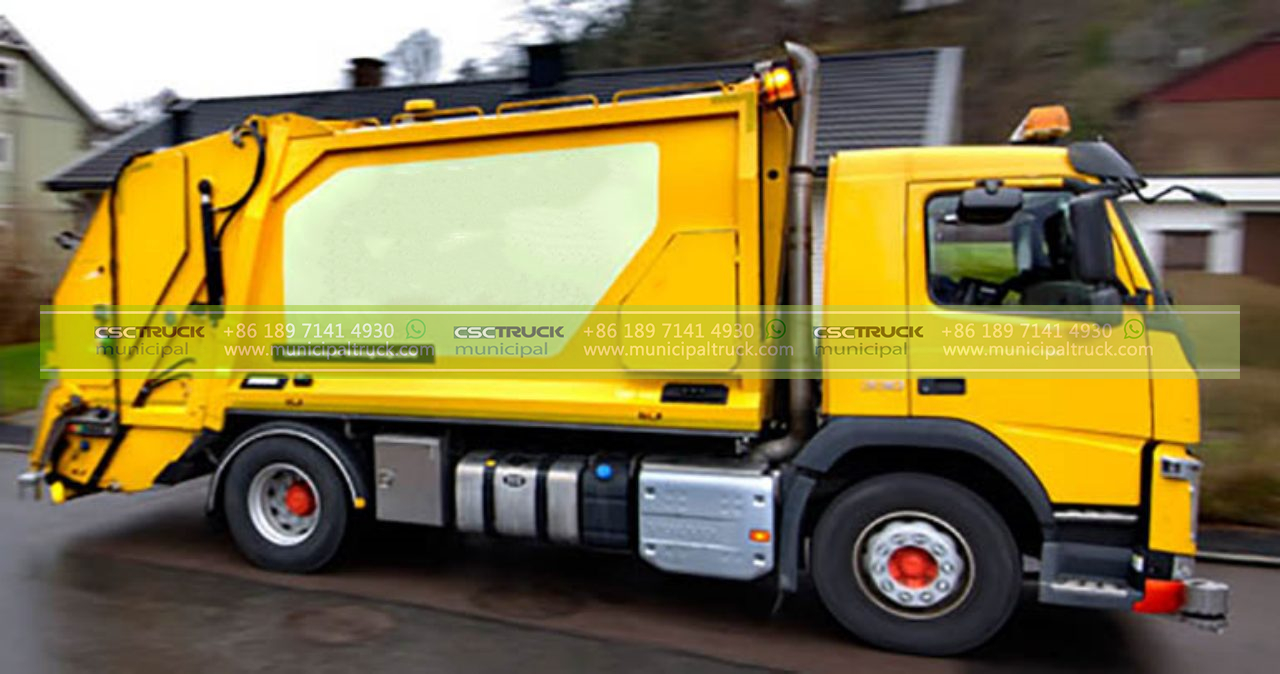
Embracing Technological Advancements
In the age of rapid technological advancements, self-tipping garbage trucks are a shining example of how innovation can transform essential services. However, the maintenance practices for these trucks also benefit from technological progress. Maintenance management software, sensors, and data analytics play a significant role in streamlining upkeep efforts.
Maintenance Management Software: With the rise of digital solutions, maintenance management software has become an invaluable tool for waste management authorities. These software platforms offer features like automated maintenance schedules, real-time tracking of maintenance tasks, and digital record-keeping. By centralizing maintenance information, authorities can better allocate resources, track the history of repairs, and identify patterns of recurring issues.
Sensor Technology: IoT (Internet of Things) sensors are making their way into the maintenance of self-tipping garbage trucks. These sensors can monitor various aspects of the truck’s performance, such as engine temperature, hydraulic pressure, and tire pressure. By providing real-time data to maintenance teams, potential problems can be detected early, allowing for prompt interventions and minimizing downtime.
Predictive Analytics: Data analytics have revolutionized various industries, and maintenance is no exception. By analyzing historical maintenance data and real-time sensor information, predictive analytics can forecast potential maintenance needs. This proactive approach ensures that maintenance actions are taken before a breakdown occurs, reducing unplanned downtime and maximizing operational efficiency.
Remote Diagnostics and Telematics: Telematics systems enable remote monitoring and diagnostics of self-tipping garbage trucks. Maintenance teams can access real-time data about the truck’s performance and receive alerts for any anomalies. This capability allows for quicker response times, targeted maintenance interventions, and efficient allocation of resources.
Collaboration with Manufacturers: Collaborating with the manufacturers of self-tipping garbage trucks is another aspect of effective maintenance. Manufacturers often provide recommended maintenance schedules, technical support, and access to genuine spare parts. Engaging in a partnership with manufacturers ensures that maintenance practices align with the design specifications, resulting in optimized performance and longevity.
Environmental Considerations
While discussing maintenance practices for self-tipping garbage trucks, it’s important to address the environmental aspects. Sustainable waste management extends beyond just collecting and disposing of trash—it encompasses the entire lifecycle of waste-related processes. When considering maintenance, environmentally-conscious practices can further enhance the positive impact of these trucks.
Eco-Friendly Fluids: Choosing eco-friendly hydraulic fluids and lubricants can contribute to reducing the environmental footprint of self-tipping garbage trucks. These fluids are formulated to have lower toxicity and better biodegradability, minimizing their impact on the environment in case of leaks or spills.
Recycling and Repurposing: During maintenance and repairs, there’s an opportunity to recycle and repurpose components whenever possible. This reduces the demand for new materials and minimizes waste generation. Organizations can partner with recycling facilities to ensure that materials like metal, plastic, and rubber are responsibly handled.
Emission Reduction: Regular maintenance practices, including tuning engines and optimizing fuel efficiency, can lead to reduced emissions from the trucks. This aligns with broader sustainability goals aimed at mitigating air pollution and combatting climate change.
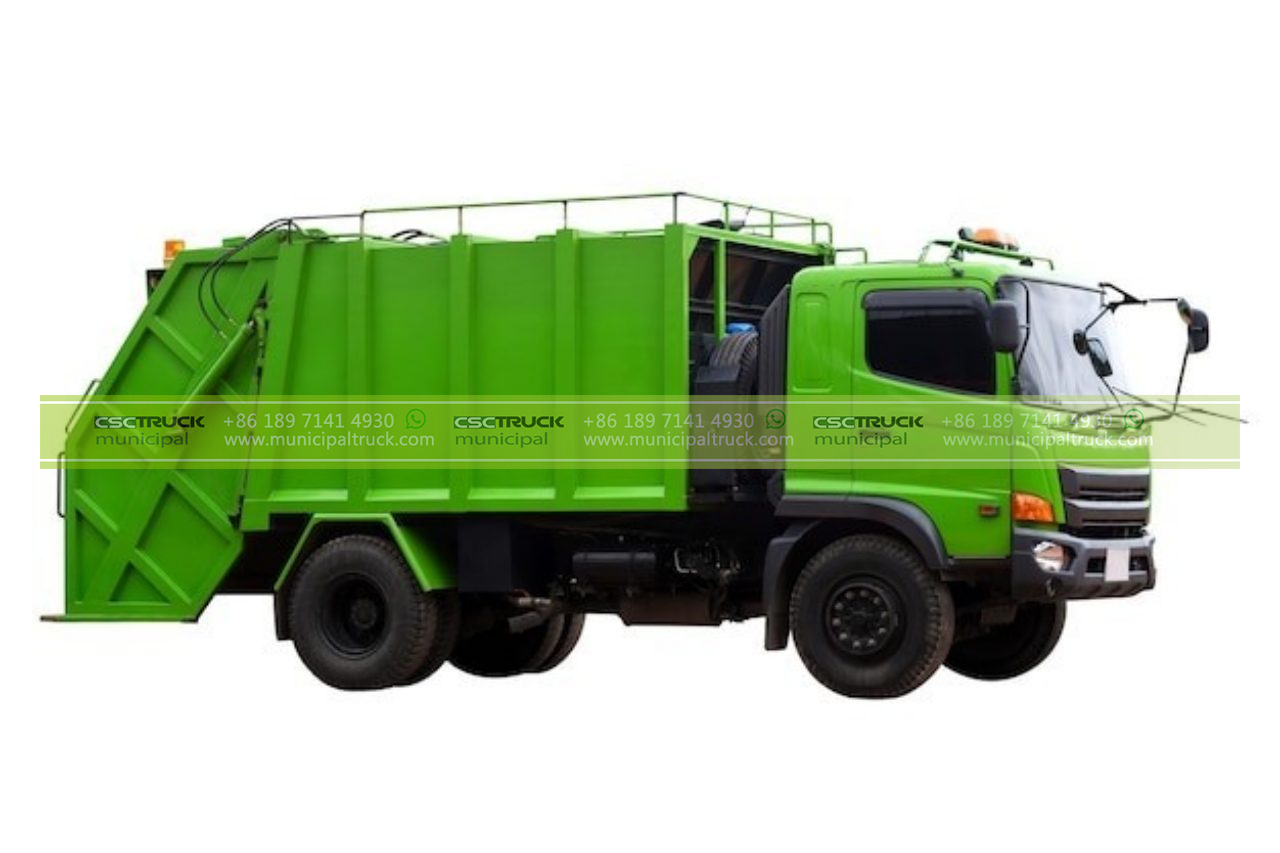
Conclusion
Self-tipping garbage trucks represent a significant advancement in waste management technology, offering increased efficiency, improved safety, and enhanced waste disposal processes. However, the realization of these benefits hinges on rigorous and systematic maintenance practices. As cities continue to grow and the importance of sustainable waste management intensifies, investing in the maintenance of self-tipping garbage trucks becomes paramount.
By combining traditional maintenance techniques with cutting-edge technological solutions, waste management authorities can ensure that these trucks remain in optimal condition. The convergence of maintenance management software, IoT sensors, predictive analytics, and remote diagnostics presents a new era of maintenance efficiency. Moreover, aligning maintenance practices with environmental considerations underscores the commitment to sustainable practices throughout the lifecycle of self-tipping garbage trucks.
In a world where waste management is not just a necessity but a responsibility, the upkeep of self-tipping garbage trucks emerges as a critical component in the pursuit of cleaner, healthier, and more sustainable urban environments. Through strategic maintenance, these innovative vehicles continue to be champions of modern waste management, paving the way for a brighter and greener future.
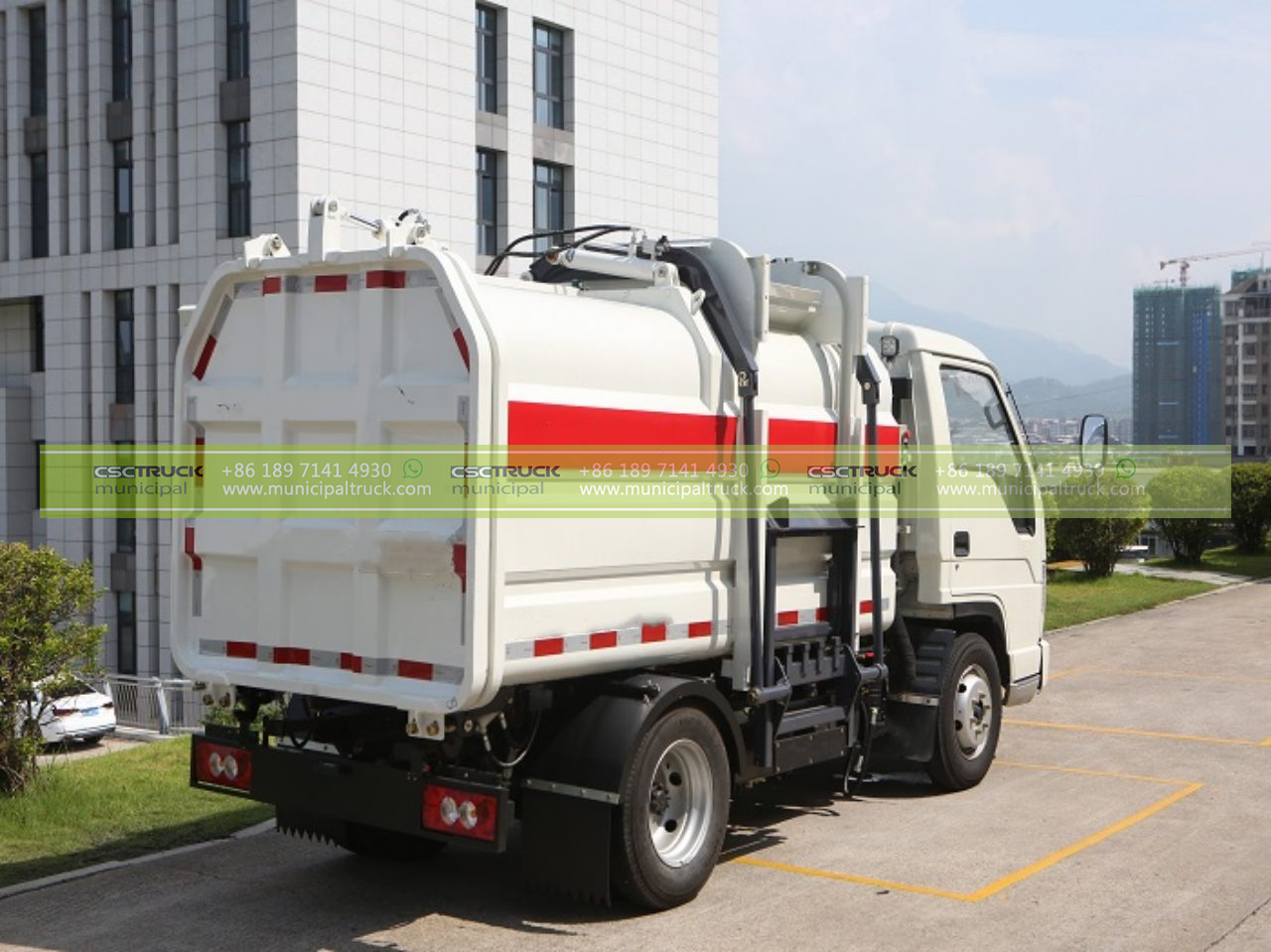
Contact us for this municipal truck or similar trucks: info@municipaltruck.com Call us or What's APP us: +86 189 4292 3930
